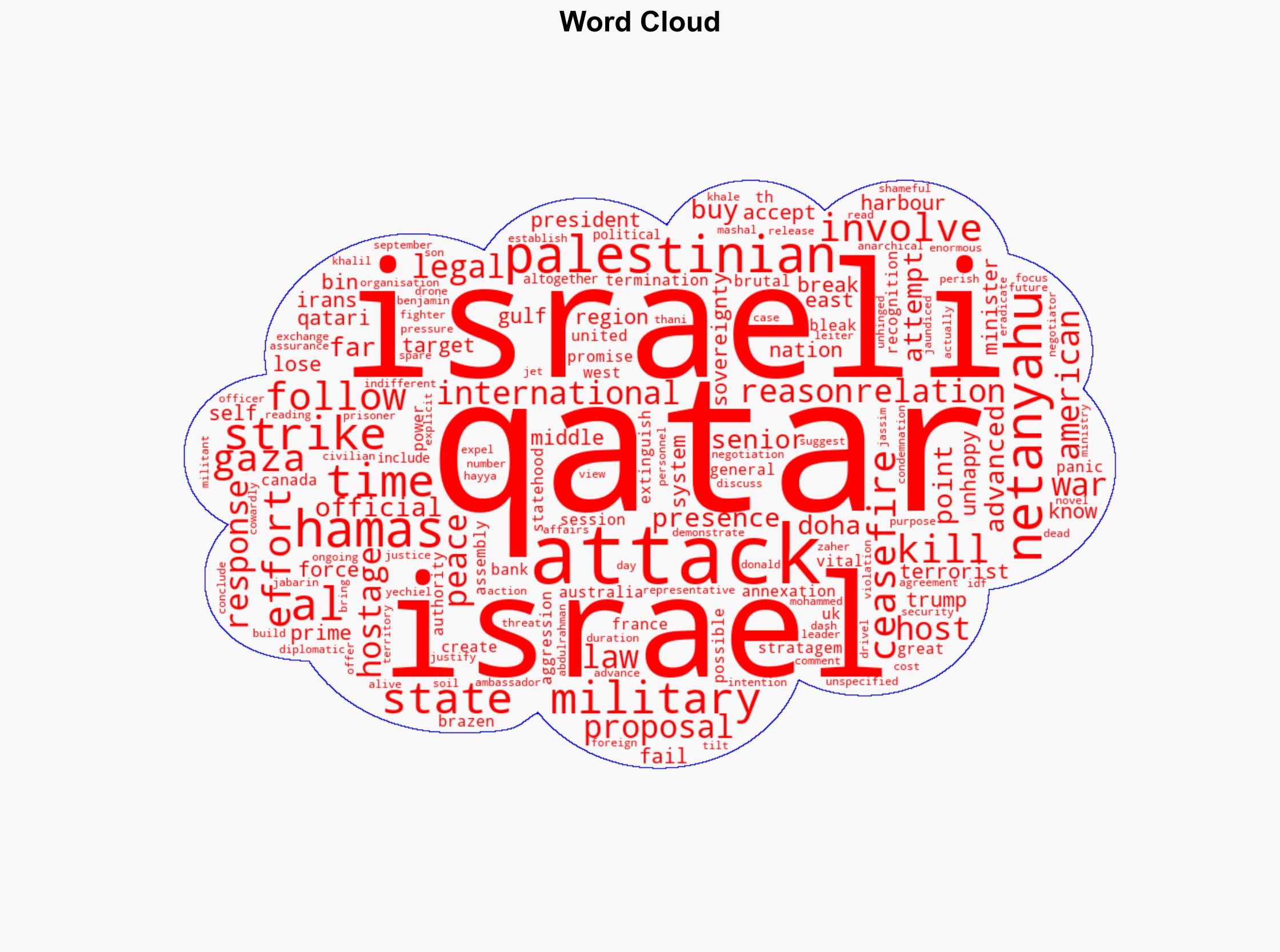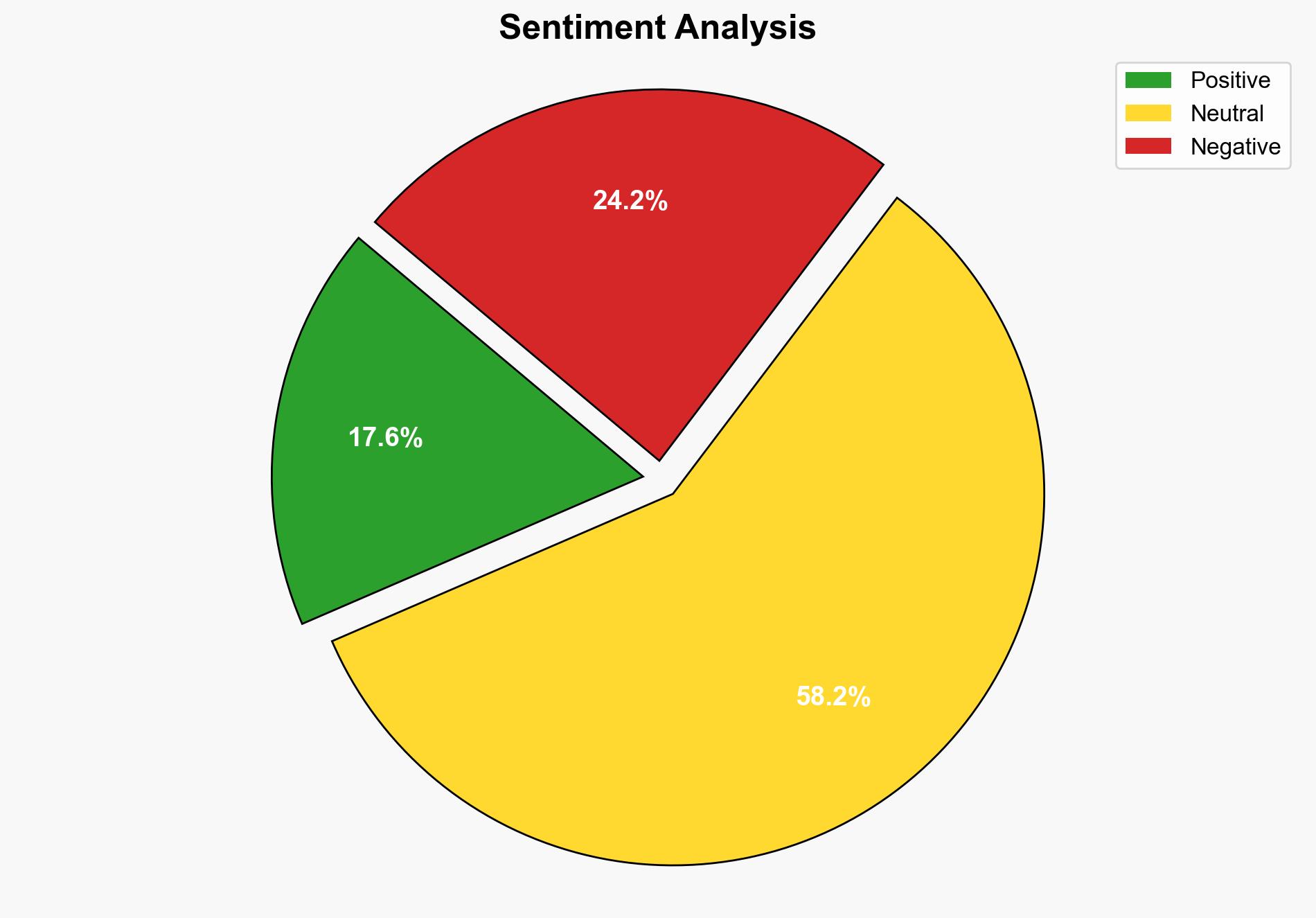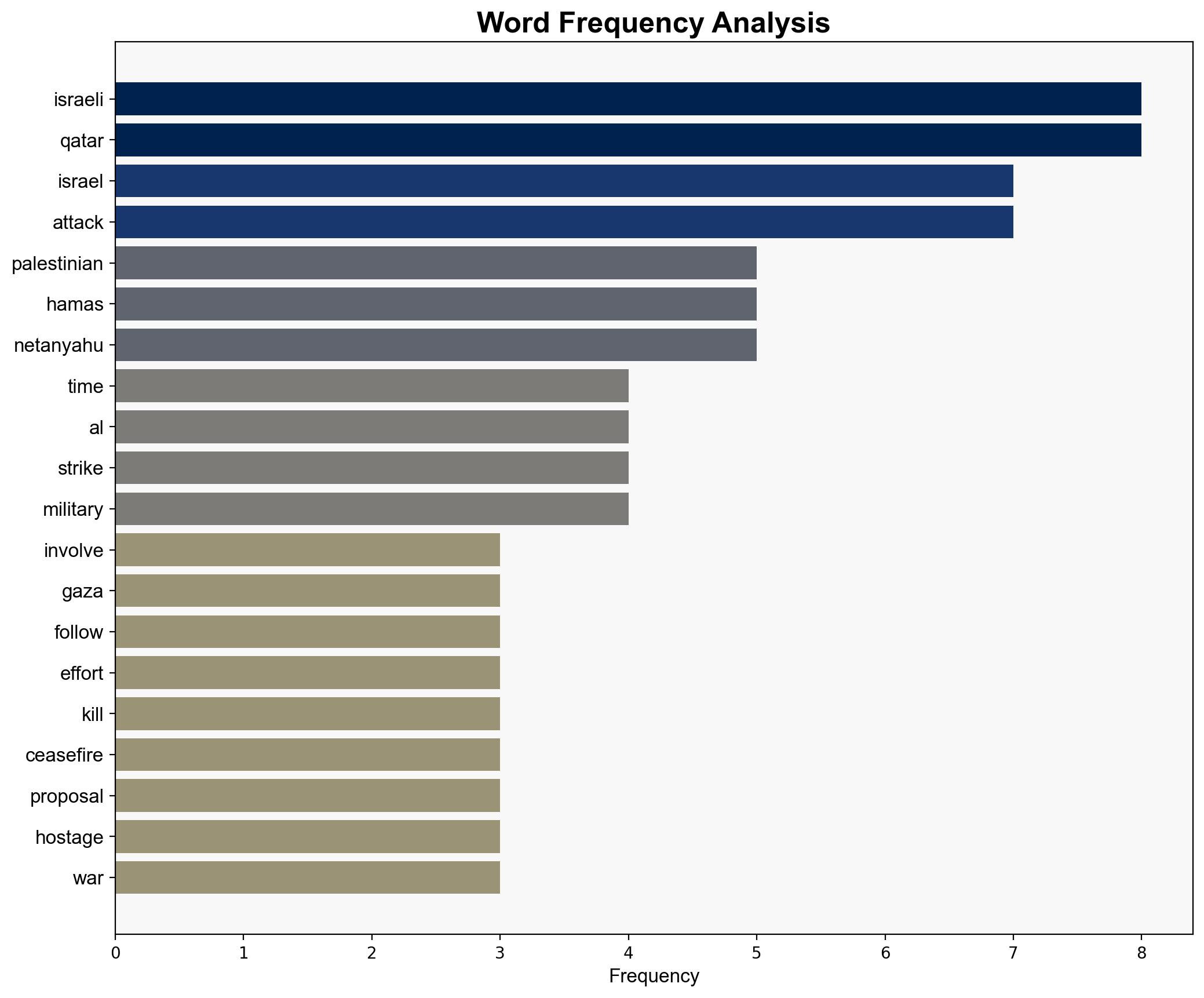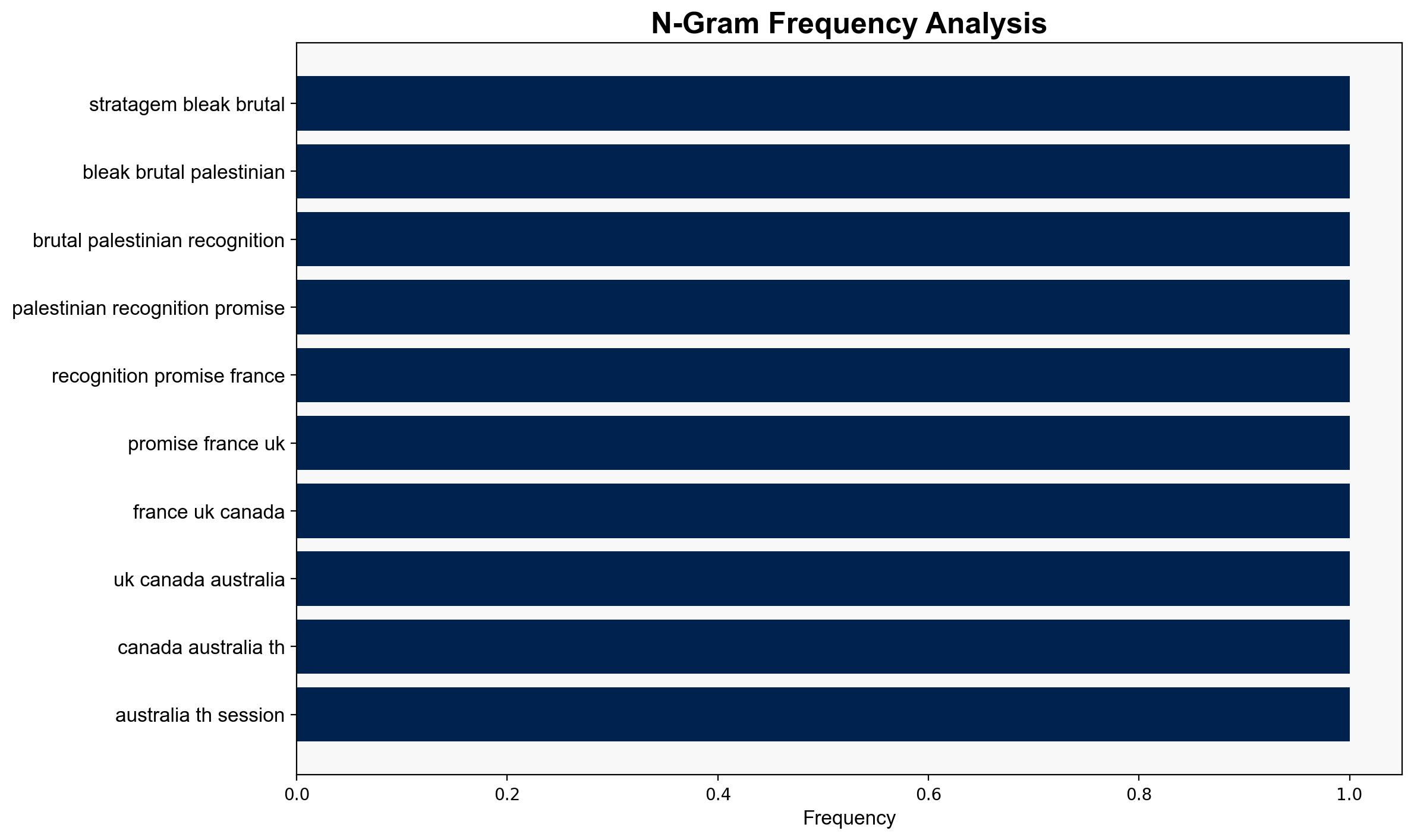Israels Rogue Attack on Qatar – CounterPunch
Published on: 2025-09-12
Intelligence Report: Israels Rogue Attack on Qatar – CounterPunch
1. BLUF (Bottom Line Up Front)
The most supported hypothesis is that Israel’s attack on Qatar was a strategic move to disrupt Hamas negotiations and assert regional dominance, with a moderate confidence level. The recommended action is to closely monitor regional diplomatic responses and prepare for potential escalations in military or economic tensions.
2. Competing Hypotheses
1. **Hypothesis A**: Israel’s attack on Qatar was primarily aimed at disrupting Hamas’ negotiation efforts and asserting dominance in the region. This hypothesis suggests that the attack was a calculated move to weaken Hamas’ diplomatic position and pressure Qatar to distance itself from Hamas.
2. **Hypothesis B**: The attack was a reactionary measure driven by internal Israeli politics and legal pressures on its leadership, using the strike as a means to rally domestic support and distract from internal issues.
Using Analysis of Competing Hypotheses (ACH 2.0), Hypothesis A is better supported due to the strategic timing of the attack during negotiations and the historical context of Israeli actions aimed at undermining Hamas.
3. Key Assumptions and Red Flags
– **Assumptions**:
– Israel perceives Hamas as a significant threat that justifies extraterritorial military action.
– Qatar’s support for Hamas is a critical factor in regional power dynamics.
– **Red Flags**:
– The lack of direct evidence linking the attack to specific Israeli strategic objectives.
– Potential bias in the source, which may influence the interpretation of events.
– Absence of corroborative data from independent sources confirming the attack’s objectives.
4. Implications and Strategic Risks
– **Geopolitical Risks**: The attack could strain Israel’s relations with Gulf states and potentially lead to a broader regional conflict.
– **Economic Risks**: Disruptions in Qatar could impact global energy markets, given its significant role in natural gas exports.
– **Psychological Risks**: Heightened tensions may lead to increased radicalization and recruitment for extremist groups.
5. Recommendations and Outlook
- Enhance diplomatic engagement with regional partners to de-escalate tensions and prevent further military actions.
- Monitor economic indicators for signs of instability in energy markets.
- Scenario Projections:
- **Best Case**: Successful diplomatic intervention leads to a de-escalation and resumption of peace negotiations.
- **Worst Case**: Escalation into a broader regional conflict involving multiple state actors.
- **Most Likely**: Continued diplomatic tensions with sporadic military engagements.
6. Key Individuals and Entities
– Benjamin Netanyahu
– Khalil al-Hayya
– Zaher Jabarin
– Khaled Mashal
– Mohammed bin Abdulrahman bin Jassim Al Thani
7. Thematic Tags
national security threats, regional focus, geopolitical tensions, counter-terrorism





